 Sherry Lansing is the Queen of Hollywood firsts. When appointed president of production of 20th Century Fox in 1980, she became the first woman to run a Hollywood movie studio. Going on to run Paramount Studios during one of its most successful decades, she prevailed as a Tinseltown superpower through the 1980s, 1990s, and early 2000s. She even became the first female studio head to leave her hand- and footprints on the sidewalk in front of Grauman’s Chinese Theater.
Sherry Lansing is the Queen of Hollywood firsts. When appointed president of production of 20th Century Fox in 1980, she became the first woman to run a Hollywood movie studio. Going on to run Paramount Studios during one of its most successful decades, she prevailed as a Tinseltown superpower through the 1980s, 1990s, and early 2000s. She even became the first female studio head to leave her hand- and footprints on the sidewalk in front of Grauman’s Chinese Theater.
Standing five foot ten, Lansing worked as an actress mentored by the legendary director Howard Hawks (she appeared in his “Rio Lobo” with John Wayne) before joining MGM as a script reader. Married to director William Friedkin since 1991, she left the film biz in 2005 to launch the Sherry Lansing Foundation, which is dedicated to funding and raising awareness for cancer research, health, public education, and encore career opportunities. Now she’s the subject of Leading Lady, an authorized biography by Stephen Galloway. On a deliciously long phone call, we talked about her many hats as well as feminism, the changing movie industry, and “Fatal Attraction,” which she produced.
LISA ROSMAN: I just spent the entire last twenty-four hours reading your biography, so it’s especially amazing to talk with you right now. To what degree did you collaborate with this book?
SHERRY LANSING: I had tried to write a memoir before and just couldn’t do it. I really don’t have any interest in living in the past and can’t write at all. And then Stephen, who I think is the most extraordinary journalist and investigative reporter, came to me so I said yes. It really was a moment of weakness because I had no controls, no approval, nothing. I gave him as much time as he wanted, and it was a very painful couple of years. But I did agree to cooperate and we’re still friends.
LR: You’re comfortable enough with it that it’s an authorized biography.
SL: Absolutely.
LR: I was moved by his exploration of your family’s history in Germany. [Lansing’s mother fled Nazi Germany at the age of seventeen.]
SL: Stephen’s research was extraordinary. He uncovered things I had never known. He met people who are still alive who knew my mother and found out that she had been engaged before she married my father, for example. I was stunned. I mean, the fact that she broke off the engagement shows a whole kind of independent spirit and guts that most people don’t have, especially given the time. I loved her, but had a very complicated relationship with her. This brought me closer to her. It was very healing.
LR: Did her difficulties impact your impulse for altruistic work?
SL: The loss of my mother to cancer is totally what motivated me to devote so much of my foundation to cancer research. It is to honor her memory. I literally watched it eat her body, and I couldn’t make sense of it. She was so young and so vibrant. She was only sixty-four. I’m seventy-two now, and I feel very alive, so it’s just inconceivable to me. I thought the only way I could honor her memory, so that she didn’t die in vain, was to help scientists have the necessary funding so someday this disease would not be anymore.
Also, my mother was completely my role model from the time I was a child about giving back. We were not a wealthy family, but I never saw her turn her back on anyone. She would give what she could financially, but most important, she gave her time. She was always there to help other people. She was completely non-judgmental, and would use an expression: “There but for the grace of God go I.” There was such compassion for somebody who had fallen on difficult times or was struggling. The book discusses how, as a child, I used cans to collect money for causes. I got great satisfaction from doing that. I think I raised $180 or something, and it was an enormous amount of money for collecting quarters.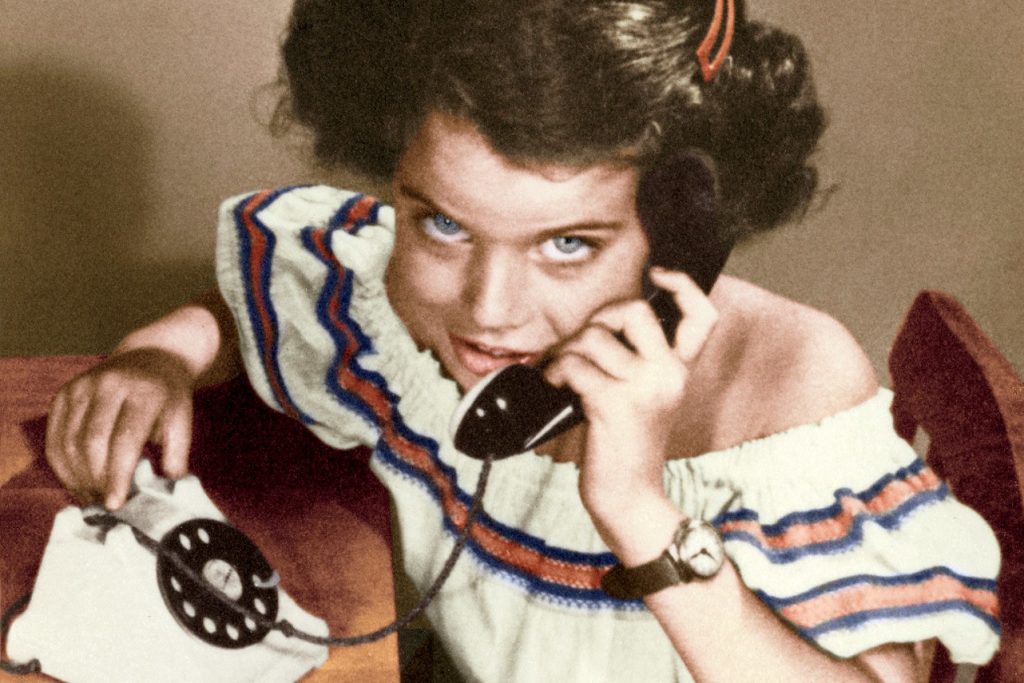
LR: That’s awesome.
SL: Yes, and that was instilled in me by my mother. Other areas of the Foundation are things I’ve experienced or that have touched me, but cancer found me because of my mother. If my mother had died of Parkinson’s, I’d be doing Parkinson’s disease research. There’s just no doubt that all of these diseases are horrible, but I feel that the cause finds you depending on what happens in your life.
ON HOLLYWOOD BEGINNINGS
LR: How did producing find you, given that you came to Los Angeles from Chicago to be an actress?
SL: From the time I was a kid, I loved the movies, and I used to get lost in them. I’d go to the double features every Saturday, and knew I wanted to be part of that world. And so I chose acting because that was all I saw. It sounds very naïve, but I didn’t know much about scriptwriters and there were hardly any film schools. I went to Northwestern, which at the time had a theater school but not a film school, and certainly nobody on the south side of Chicago was in the film business. So by default I decided to be an actress. I also think it was because I was insecure and felt that maybe if you got that attention, you would feel good about yourself.
LR: Well, and you’re gorgeous.
SL: Well, I didn’t feel it. (laughing)
LR: Fair enough, but I’ve seen the pictures. (laughing)
SL: So when I came out to Hollywood after I graduated, I was teaching math and English in the Watts section of East LA, and after school I would try to get an acting job and would study acting. Eventually, I got cast, and when I started to act in commercials and little parts in movies, and then eventually a co-starring part in a John Wayne movie, I felt uncomfortable. I would get this incredible tension in my arms and legs, and it wouldn’t go away. I felt inauthentic, like a fake. I guess that’s the only word I can use. I have the greatest respect for actors because I can’t do it. I was terrible and so uncomfortable. I mean, the world did not lose anything by me not being an actress.
LR: But compared to many who come to Los Angeles, you did have some success.
SL: Well, it was such a painful time in my life. And it didn’t make me feel any better about myself. It was at that point that I started to look around, and say, “Well I’m on a movie set, what are all these other people doing?” And I saw that I had the skills to be a reader for a producer.
That was the first job I got. I would read a script and synopsize it so the producers wouldn’t have to read it themselves. The minute I went into that office, which was a very small room with a little desk and a phone, I was comfortable. I had a college degree, and I loved literature, and I felt confident enough that I could read a script and tell people what I thought. Then, eventually, the producer, this wonderful man named Ray Wagner who made great movies and respected my opinions, let me come into some of the story conferences with the writers. I can only tell you that it was a logical progression. It’s probably when I was in that first story meeting with the writers and the producer that I went, “Wow. I want to be part of this.” Then I went to a studio and did it, and just progressed my way up.
LR: You have such a good eye for seeing the rhythms of a story, for what does and doesn’t work.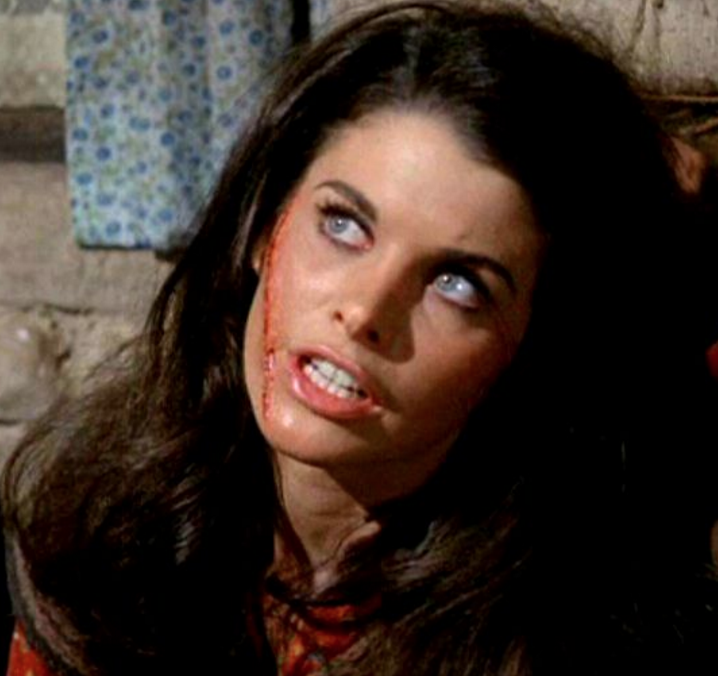
SL: Maybe it’s because I had been an actress. Jim Bridges, who was a director, taught me to read [aloud] scenes that were giving me trouble. It gives you an intense sense of the rhythm, of whether it’s truthful. Maybe it was psychoanalysis I did (laughs), too. You’re analyzing characters.
LR: It seems like you trust your instincts. Whenever you do it your way, things come into fruition.
SL: One of my favorite books is Blink. I’m totally a Blink person. I trust my stomach, I trust my instincts, and then I try and apply rational thinking afterward.
LR: What other books are on your radar?
SL: I’m reading The Lady in Gold because we’re going to Vienna. It is phenomenal.
LR: It must resonate with your family story, too.
SL: Yes, very much so. For some reason, I’m also rereading Fitzgerald. When I first came out to California, I was newly married and I read all of Fitzgerald and all of Hemingway in a totally empty, teeny one-bedroom apartment while we were waiting for our furniture to be shipped. I remembered how fast the days went by, and so I just got this urge to reread Fitzgerald.
LR: Go west, young woman.
SL: (laughing) Yes, that’s right.
LR: What do you think made it possible for you to go where so few women had gone before?
SL: I don’t know the answer, really. I can only tell you that I loved movies. I was passionate about them, I cared about them, and I was resilient, I didn’t take “no” for an answer. And I guess the biggest thing is that I overworked and overprepared.
I also had a capacity for denial. I certainly grew up in a world where the opportunities I had mostly weren’t available to women. So whatever plights were flung at me, I just kind of ignored them. I also didn’t really care about becoming the head of the studio. I used to say there wouldn’t be a woman head in my lifetime. I just wanted to make these movies, and that was what kept me going all the time, and the rest wasn’t important to me. So, the capacity for denial can serve you very well. It can keep you in a very positive frame of mind.
And actually the movies that were the hardest to make were the most successful, and often the movies that came together easily were the more disappointing ones.
LR: What are some of the harder movies that you are really proud of?
SL: “Fatal Attraction.” “The Accused” was extremely hard. “Clueless” and “Forrest Gump.” Also “First Wives Club.” Everyone turned that film down. I had it as a producer and couldn’t get anyone to do it, and then I became an executive, and thought, “Well I’m the head of the studio now. Of course I can get it made!” But I couldn’t get anyone to do it then, either.
ON ‘FATAL ATTRACTION’
LR: I wanted to thank you for spearheading some of my favorite movies about women from the last thirty years, including “The Accused,” “Clueless,” “Mean Girls,” and “Fatal Attraction,” which in my opinion is often misunderstood. I know it went under a lot of fire with feminists.
SL: It did, and I’m a feminist!
LR: So am I! And I felt that the portrayal of Alex Forrest in that film was deeply empathic, actually. The discussion of this film in Leading Lady is so interesting, especially regarding the very controversial ending, which was different from what was originally filmed.
SL: Oh, I loved the original ending. It goes back to that moment in the film when Michael Douglas and Glenn Close have a fight and she says, “I won’t be ignored, Dan.”
LR: I love that line! I say it all the time!
SL: It’s one of my favorite lines of the movie, and I think it’s a very strong, feminist statement.
LR: It is!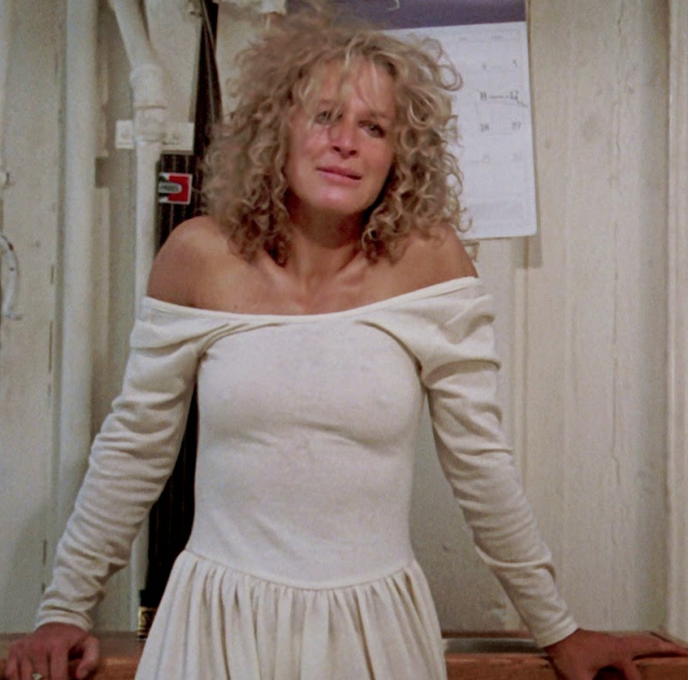
SL: And I think that, you know, it was saying to a man, “You can’t just treat me like our night didn’t exist. I’m worthy of respect. Your actions have consequences, for lack of a better expression.” So in the original ending, his fingers are on the knife when he tries to take it away from her, and she kills herself in the same manner as Madame Butterfly, which is an opera they discuss loving earlier in the film. And then they trace his fingerprints on the knife, so he goes to jail. I thought, “Well, that’s perfectly fine! He shouldn’t have cheated on his wife for no reason. Let him go to jail!”
LR: (laughing) I love it!
SL: That was the original ending. And it’s a film noir, you know, and really good. And by the way, they have the original ending on the DVD.
So, then what happened is a lot of people felt that the end didn’t justify the crime on the day we shot that scene. So we shot another scene where, as he’s being carted off to jail, Anne Archer goes to his office to find his lawyer’s number and discovers a tape that Glenn Close sent to him. On it, she’s saying how much she misses him, and that, if he doesn’t return her calls, she’s going to kill herself. When Anne Archer finds that, she knows he’ll be saved. And that was the original ending that we showed to a test audience.
LR: Wow.
SL: So the score was not a failure but not a huge success either. And everyone at the studio had loved the movie, and thought the movie would be a gigantic hit. So we tested it again and again, and it kept getting the same score. Finally, we started to test the original ending, in which he gets blamed. And that tested even worse. In San Francisco, at the popcorn counter, Frank Mancuso, who was then the chairman of the studio, came up to me and said, “Every time Anne Archer picks up the phone and says, ‘If you come near my husband again, I’ll kill you’ to Glenn Close, the audience bursts into gigantic applause.
LR: That’s true even now!
SL: They want her to seek revenge. And I looked at him like he was crazy. But the studio said, “They want you to terminate the bitch with extreme prejudice.” I hate that expression but that’s what he said. It’s in the book.
Ned Tannen was a great executive, and he resisted it. I resisted it. [Director] Adrian Lyne resisted it. But [producer] Stanley Jaffe did not resist it and Michael Douglas didn’t resist it. He said, “I know how much you love this picture. I’m going to give you whatever is necessary to try a new ending. And if you don’t like it, you never have to use it.”
Now that is an irresistible offer. And I have used that very same technique many, many times since. Because how can you say no to that? “If you don’t like it, you don’t have to use it.”
Eventually we changed the ending and I thought, “Oh, this is terrible, we’re selling out.” I actually went to a therapist to talk about values.
LR: (laughing) Oh my god!
SL: I was just beside myself because I’m not a person who wanted to sell my soul, and Adrian and I went to Glenn Close and she didn’t want to do the new ending. This is all in the book. Eventually Adrian said, “Well, if we’re going to do it, let’s go for broke,” and Glenn was fantastic. She gave it her all. Michael gave it his all. Everyone gave it their all.
LR: That Madame Butterfly ending would have been magic, though.
SL: But, here’s what happened, and I have to tell you the truth: Adrian called me from the editing room and said, “Come on over.” I sat next to him and when Anne Archer swipes open the shower and you see Glenn Close….
Now, I had seen them shoot that. I was there every day on set and I had seen every day of dailies. But I literally jumped out of my seat when I saw it in the editing room. We looked at each other, and went, “We love it.” And it still got the integrity of what we wanted. It still had every single thing.
LR: Well, it’s not like the man gets to kills her. It’s the exchange between these two different modern women – two examples of who you can be in your thirties. A single working woman. A woman who stays at home with her child.
SL: Yeah, and the film pushes everybody’s buttons. I was really upset, you know, when feminists attacked it. I remember calling Gloria Steinem and asking her why, and she explained it to me. But I said, “This is only one career woman. It’s not all career women.” To me, it was about a woman who had had one married guy too many. Everyone has a breaking point at some point, and this was hers.
Oh, and Alex was pregnant! I mean, I really do believe that she was pregnant.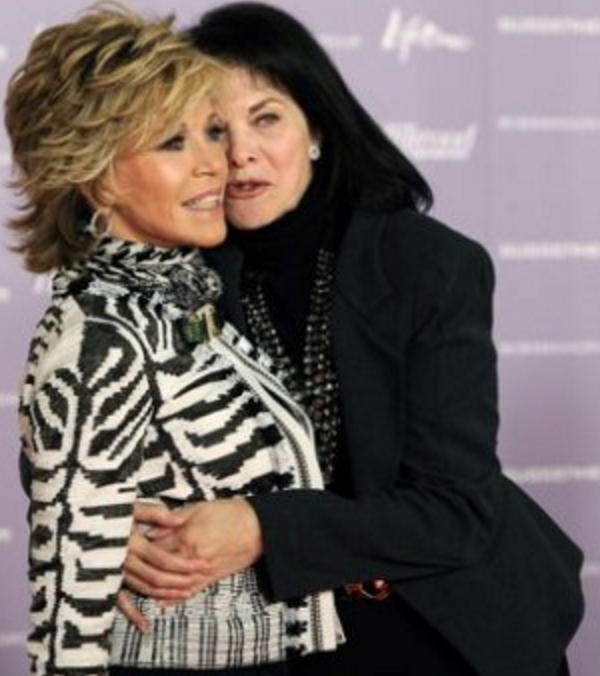
LR: It’s so funny because there are whole online discussions about that.
SL: We all believed she was pregnant. And you know, I was unbelievably empathetic, and so was Adrian. The thing that bothers us to this day is that one of our favorite moments in the entire film – that scene when she sits there so lonely at night…
LR: With the light clicking on and off while he is off bowling with his friends and wife! Oh my god, I love that scene. The editing is fantastic.
SL: Do you know that Adrian edited that scene probably fifteen different ways? Because people in test screenings would laugh, and it drove us crazy. We wanted it to make people cry, not laugh. But they kept laughing.
LR: That scene hurts my heart.
SL: It hurt my heart, too.
ON FEMINISM
LR: Okay, so you’ve worked with some really powerful feminist icons. You’ve mentioned Gloria Steinem, Jane Fonda is quoted liberally in the book, and I consider you a feminist icon as well, whether or not that feels okay to you. But did you have to transition into thinking of yourself as a feminist?
SL: Yeah, I think it came along over the years. I was raised by a mother who, in her own way, was a feminist, having run my father’s business after he died, and who really believed that happiness and life didn’t only consist of getting married and having two children. The minute she remarried, she stopped working, though, so it was mixed signals. And so I became a feminist through the progression of my life, and through the women’s movement.
I owe so much to Gloria Steinem and Betty Friedan for talking and writing about how we should have equal rights and the right to equal pay. I mean, when you read the book, there’s a section where I ask for a raise, and they say, “Well, you’re not a guy, you don’t have kids to support,” and I go, “Oh, okay.” I’m ashamed of that now, but I had to grow up, my self-esteem needed to change through therapy and through the women’s movement, before I could say, “Wait a minute, this isn’t right. I deserve as much money” and “Wait a minute, I can run a studio.”
What I learned from my mother was that I never wanted to be a victim. And the films I’ve made about women touch on that. In a funny way, it’s about Glenn Close saying, “I won’t be ignored, Dan.”
LR: The greatest line ever.
SL: And it’s about Jodie Foster in “The Accused” – the double victimization of a rape victim. You know, first they’re raped and then it’s their fault. And even in the “First Wives’ Club,” they are left by their husbands and want revenge. What are called “Sherry’s movies,” for want of a better term, are films about women who are treated unfairly and get revenge. They rise up and become empowered. This was personal for me.
ON LIFE AFTER HOLLYWOOD
LR: So what inspired you to transition out of the movie industry given your love for it?
SL: It used to be that the only thing that was important was the movie. You would make a movie, and if it was good, word of mouth would kick in,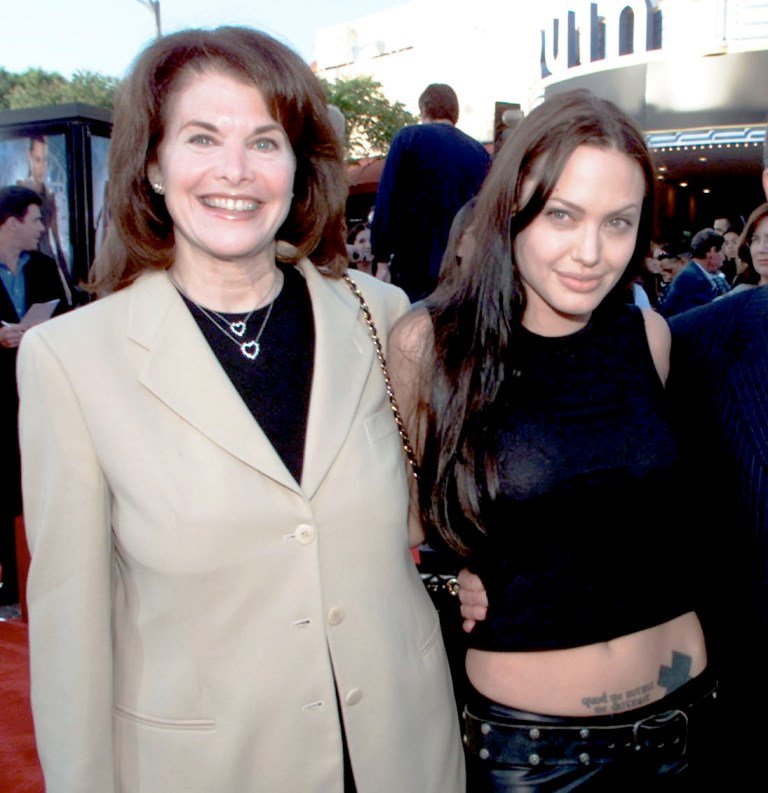 and everything would be good. Or if word of mouth was bad, the film wouldn’t work, period. But during my time in the film business, marketing started to become as important as the movie, and now, in some cases, it’s even more important. If you can market it, if you can sell it, period. The staple of the studios, which I enjoy as much as anybody else and which I go to see, are very special effects-driven, comic book-driven. And the movies that got me into the business were the movies where people talked, where there were social issues. Those have been made less and less.
and everything would be good. Or if word of mouth was bad, the film wouldn’t work, period. But during my time in the film business, marketing started to become as important as the movie, and now, in some cases, it’s even more important. If you can market it, if you can sell it, period. The staple of the studios, which I enjoy as much as anybody else and which I go to see, are very special effects-driven, comic book-driven. And the movies that got me into the business were the movies where people talked, where there were social issues. Those have been made less and less.
LR: Most of the films you produced would have to be indies now.
SL: That’s correct, or at least long-form television.
LR: Are you okay with that?
SL: Yes, I’m totally okay with it. It doesn’t make any difference what the form of distribution is. There’s more content now than ever before. As long as I can still see what I want, I don’t care if I go to a theater or if it’s at home. It’s on my iPad.
LR: Are there any projects you come across now that could pull you back into the business?
SL: There’s nothing that could pull me back in. My interests and my passions have changed. I believe in chapters, and I’ve finished that chapter. When I left I felt as if I was repeating myself. I felt like the highs weren’t as high, and the lows weren’t as low. And I felt this incredible need to give back, to start my foundation. It was time to move on.
LR: This reminds me of something Nora Ephron said about doing something different professionally every decade of her life.
SL: Someone told me that at the Harvard Business School, they say you’re supposed to replant yourself every ten years so you get fresh and you have curiosity. For me, starting the foundation was like graduating college. All of a sudden, there is a whole new world out there. You have to learn new things; you have to meet new people. It’s thrilling.
LR: Tell me about the Sherry Lansing Foundation.
SL: So, our foundation has three buckets. The first is cancer research. We fund scientists, and I’m proudest of that because we’ve given away close to 500 million dollars. We have these telethons where all the networks and cable channels participate. It was kind of like directing the skills I learned in making movies toward something that I love even more now. The second bucket is education. I’m still a Regent of the University of California, which I love, and I chair health services, so the hospitals are my responsibility. The third bucket is putting retired people back to work. We have a ton of programs throughout the state, beyond a core teaching program, in which we take retired people with math and science degrees and train them to be math and science teachers, providing that they’ll teach in an underserved area of the state. That deals with the shortage of 33,000 math and science teachers in our state, alone. We’re trying to really level the playing field because it’s horrendous that there are schools where there’s often no math teacher, no math book, no science teacher, no science book.
I would say the buckets are cancer research, education, and rewiring, for lack of better words.
LR: Have your humanitarian goals changed since January 20?
SL: They were always urgent. To me, the only way out of poverty is through education. The playing field has to be level, and the most important thing is who your teacher is. My teachers meant so much to me.
LR: Leading Lady is bookended by your visits with President Carter. Have you stayed in touch or has this been difficult given his illness?
SL: He’s not ill anymore! As he’s been a miracle all his life, he is a miracle again. He has been treated through immunotherapy, and he’s cancer-free. He has more energy than I ever would hope to have and he’s one of the most extraordinary human beings I’ve ever been blessed to have met. I’ve read all of his books. He is an idol of mine, and in person he is even better. I’m in touch with him all the time. I’m on his board!
LR: What is the most useful guidance that he’s offered you?
SL: He’s a living example of someone who has dedicated his life to causes bigger than himself. And when you see he has such joy and such happiness and such curiosity, it leads you to believe that one of the secrets to having joy in this life is giving back.
LR: Do you feel that kind of joy in your own life?
SL: I do. This is the happiest time of my life. I feel such gratitude for my life, but also for my husband, my kids, my friends, and the work that I’m doing now.
